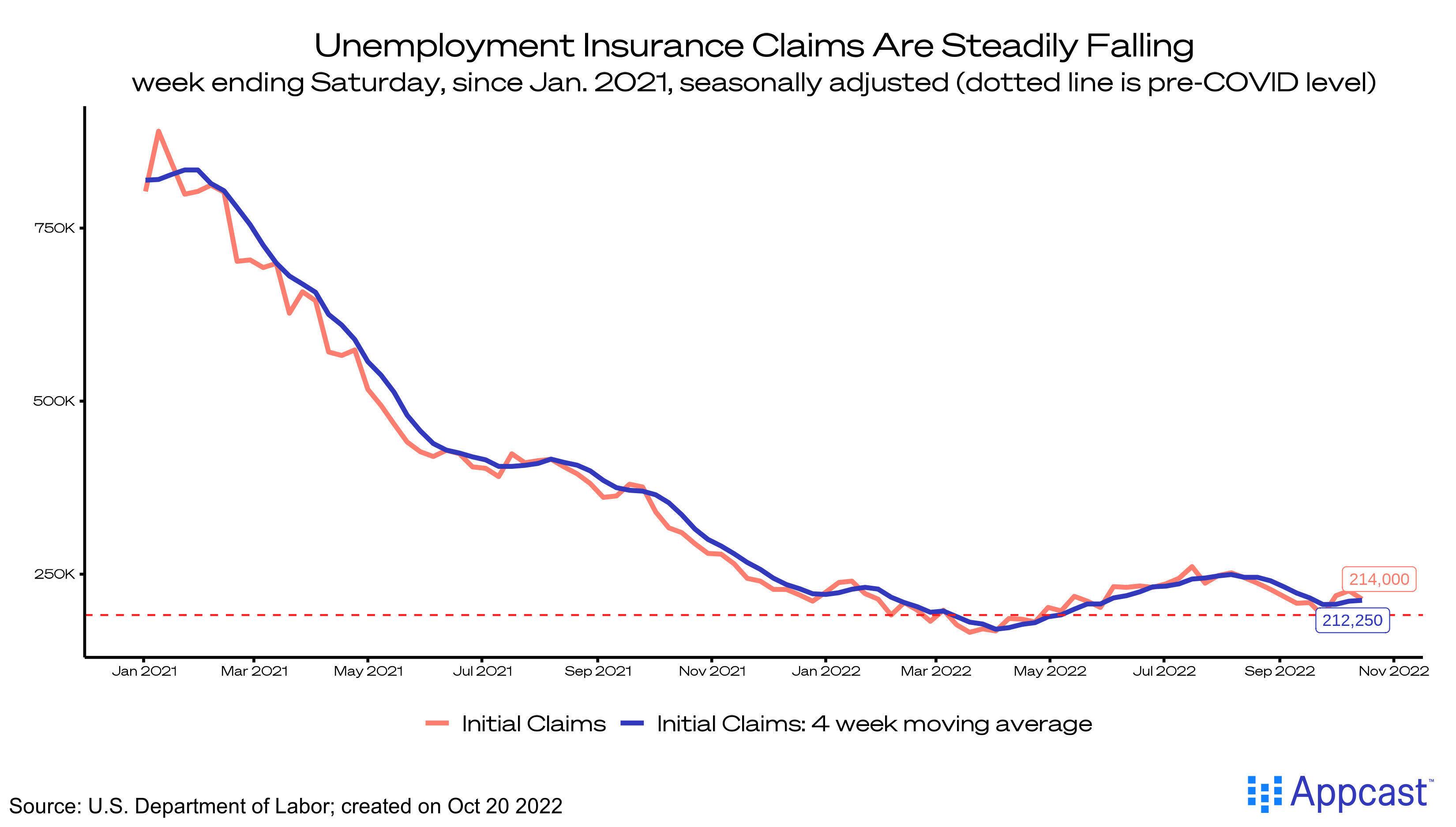Initial jobless claims fell last week. The claims are a proxy for layoffs – the decrease offers further evidence that employers are holding onto their labor despite economic turbulence.
For the week ending October 15, 214,000 initial claims were filed, down 12,000 from the week before. The 4-week moving average increased very slightly to 212,250.

Late this summer, initial claims rose mildly from historic lows, but those increases have peaked. Now, claims are settling comfortably near their pre-COVID levels. In the week ending February 1, 2020 – right before the pandemic sent them soaring – there were 191,000 claims. The still-tight labor market may be keeping a large increase at bay; recently jobless workers can quickly find a new position as job openings firmly outnumber the unemployed.
Initial claims falling back to earth speak to the continued tight competition in the labor market; despite recent signs of cooling, the U.S. economy remains at, or very near, full employment.







